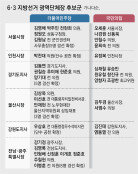[Editorial] Smiles Cant Hide Rift in Korea-U.S. Alliance
[Editorial] Smiles Cant Hide Rift in Korea-U.S. Alliance
Posted November. 18, 2005 08:26,
U.S. President George W. Bush stressed at the summit talks held in Gyeongju yesterday that the bilateral relationship is robust, saying, The link between the two countries is stronger than ever. President Roh agreed with him, saying, The bilateral alliance is doing great, and will do even better.
But the soundness of the ROK-U.S. relationship can be proved only when the conflicts behind the diplomatic rhetoric are fully addressed. In this regard, the summit talks that reasserted the solid alliance and the principle of the peaceful and diplomatic resolution of the North Korean nuclear issue seem to testify to the difficulty in narrowing the rift in the alliance.
The two leaders agreed to continue to explore ways to improve the human rights conditions in North Korea. But Roh drew the line, saying, There are many issues to be addressed in inter-Korean relations. So the political implications should also be taken into consideration. He added, Abraham Lincoln was once criticized for not doing enough for the liberalization of slaves. But he chose to push for the liberalization of slaves step by step, with the first priority on the integration of the Confederacy. He highlighted the difference of opinions between the two countries, by giving a lecture on past history, which can be regarded as a discourtesy in high-level diplomacy.
Differences between the two countries have already surfaced on several issues, such as the transfer of military operational control authority, the potential abolition of the War Reserve Stocks for Allies (WRSA) program, and the enhancement of Joint Operation Plan 5029. As the Roh administrations policies toward the self-reliance and stronger inter-Korean cooperation have taken Korea and the U.S. further apart, the chasm between the two countries has resulted in a huge burden which will eventually weigh down the Korean people.
The summit talks are designed to provide the concerned parties with a forum to explore ways to reach a broad consensus so that the issues or sources of dissonance can be resolved in a way that benefits both parties. We cant be sure if the ROK-U.S. summit talks provided two countries with such an opportunity. Even though the two leaders said unanimously that there is no problem in the ROK-U.S. alliance, the mere fact that they agreed to create a new ministerial-level dialogue channel called: A strategic dialogue commission for a stronger partnership proves the existence of many differences. To revive the ROK-U.S. alliance, we should see through the smiles on the faces of the two leaders and face reality.



![[단독]주한미군 무기 중동 차출 협의…핵심 ‘에이태큼스’ 거론](https://dimg.donga.com/c/138/175/90/1/wps/NEWS/IMAGE/2026/03/05/133466662.1.jpg)

![[김순덕 칼럼]‘삼권장악 대통령’으로 역사에 기록될 텐가](https://dimg.donga.com/c/138/175/90/1/wps/NEWS/IMAGE/2026/03/04/133466302.1.jpg)

